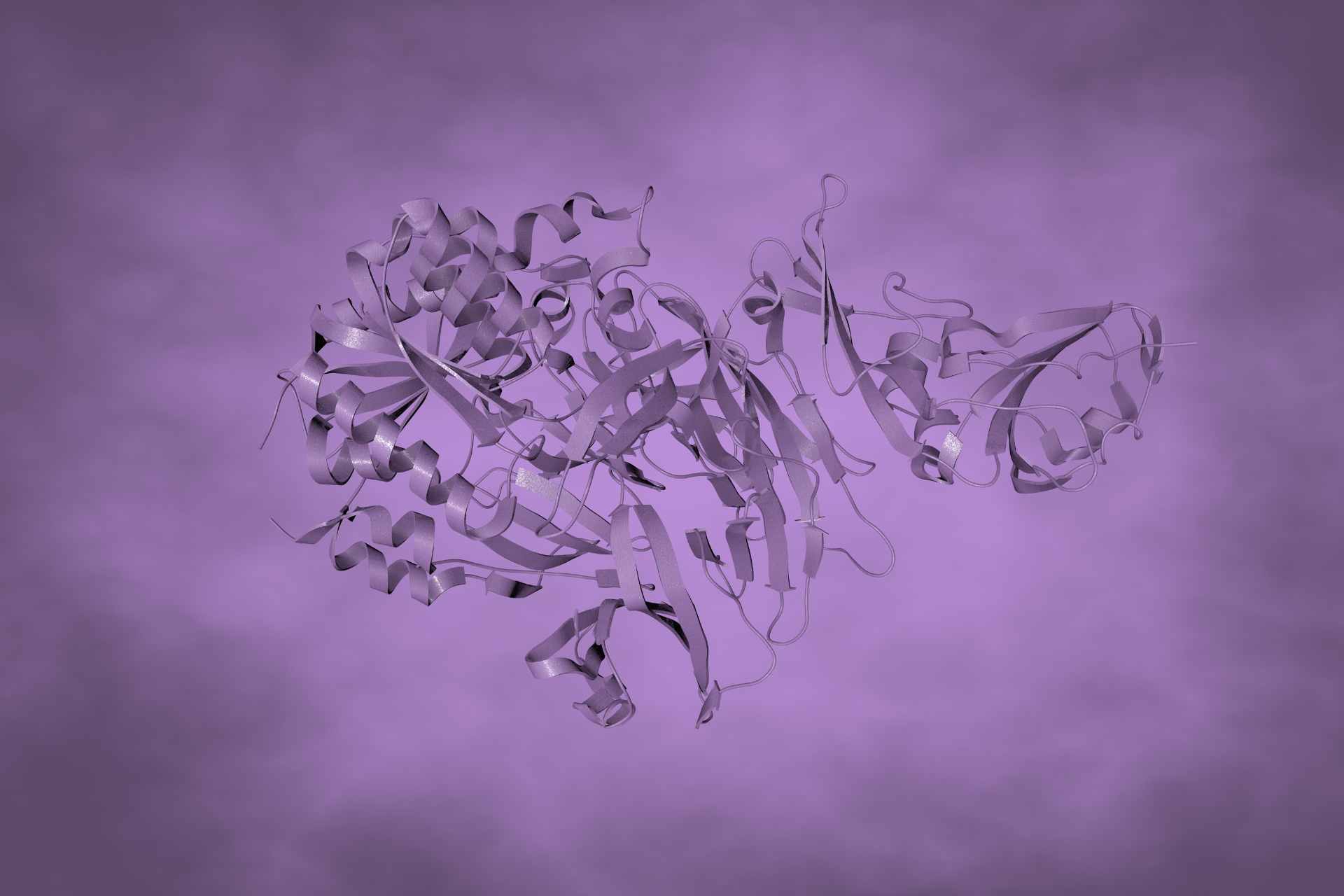What is already known
The gut microbiota produces a wide range of proteins called isozymes, which have functions similar to enzymes produced by the human body. For example, isozymes of human DPP4, an enzyme that increases insulin secretion and is a therapeutic target for the management of type 2 diabetes, have been found in many organisms, including bacteria. But it’s unclear which gut bacteria produce DPP4 isozymes or what effects microbiota-derived DPP4 may have on host health.
What this research adds
Researchers developed a screening platform to identify isozymes from human and mouse gut microbiota that may influence host physiology. Among the enzymes identified in the screen, the team found a bacterial DPP4 that is expressed by specific Bacteroides species. This microbial DPP4 decreased the activity of glucagon-like peptide-1 (GLP-1), a hormone that reduces appetite and stimulates the release of insulin, in mice fed a high-fat diet. Microbial DPP4 also disrupted glucose metabolism in these mice. Inhibitors of human DPP4, which are commonly used to treat diabetes, did not fully impair the activity of microbial DPP4. However, using a drug-screening system, the researchers identified an inhibitor of microbial DPP4, called Dau-d4, which improved glucose tolerance in obese mice.
Conclusions
The findings suggest that Dau-d4 can supplement current DPP4 treatment approaches for type 2 diabetes.
Sitagliptin is a drug used to lower blood sugar levels in adults with type 2 diabetes, but the treatment is not effective in all patients. Now, researchers have identified a gut microbial enzyme whose activity may contribute to the variable responses to sitagliptin observed among people with diabetes.
The findings, published in Science, suggest that treatment approaches that target both human and gut microbial enzymes can achieve greater clinical efficacy.
The gut microbiota produces a wide range of proteins called isozymes, which have functions similar to enzymes produced by the human body. For example, isozymes of human DPP4, an enzyme that increases insulin secretion and is a therapeutic target for the management of type 2 diabetes, have been found in many organisms, including bacteria.
However, it’s unclear which gut bacteria produce DPP4 isozymes or what effects microbiota-derived DPP4 may have on host health. Researchers led by Kai Wang at Peking University in China developed a screening platform to identify isozymes that may influence host physiology. Then, they used the platform to screen stool-derived communities of human and mouse gut bacteria that were similar to the original gut microbiota.
Enzyme screen
Among the enzymes identified in the screen, the team selected 110 enzymes that are involved in various human diseases, including a bacterial DPP4 that is expressed by specific Bacteroides species, including B. thetaiotaomicron, B. fragilis, B. eggerthii, B. vulgatus and B. dorei.
In mice fed a high-fat diet, this microbial DPP4 decreased the activity of glucagon-like peptide-1 (GLP-1), a hormone that reduces appetite and stimulates the release of insulin. Because a high-fat diet can induce changes in the composition of the gut microbiota, leading to damage to the intestinal barrier, the researchers speculated that the ‘leaky gut’ induced by a high-fat diet could allow microbial DPP4 to decrease the activity of host GLP-1 in mice.
Indeed, after 12 weeks on a high-fat diet, the animals showed an increased intestinal barrier permeability. In these mice, the gut microbiota appeared to contribute to DPP4 activity in dampening GLP-1 levels, the researchers found.
Diabetes management
In mice fed a high-fat diet, microbial DPP4 also disrupted glucose metabolism. However, sitagliptin and other inhibitors of human DPP4, which are commonly used to treat diabetes, did not fully impair the activity of microbial DPP4. Indeed, further tests showed that the enzyme limits the efficacy of sitagliptin in people with diabetes and in glucose-intolerant mice. “Differences in the gut microbiota may explain why some individuals respond to antidiabetic DPP4 inhibitors but others do not,” the researchers say.
Next, the team set out to identify inhibitors of microbial DPP4. To do so, the researchers developed a drug-screening system and tested the inhibitory effects of more than 100,000 compounds on microbial DPP4. They found that a compound called Dau-d4 inhibited DPP4 activity in Bacteroides species and improved glucose tolerance in obese mice.
The findings suggest that Dau-d4 can supplement current DPP4 treatment approaches for type 2 diabetes.
“By showing the benefit of pharmacological inhibition of microbial DPP4, our results highlight the potential value of targeting this microbial enzyme in the clinical treatment of patients with [type 2 diabetes] who show poor responses to currently used DPP4 inhibitors,” the researchers say. “Such a ‘drugs for bugs’ approach in the management for this common chronic disease could be expanded to other similar human diseases.”









